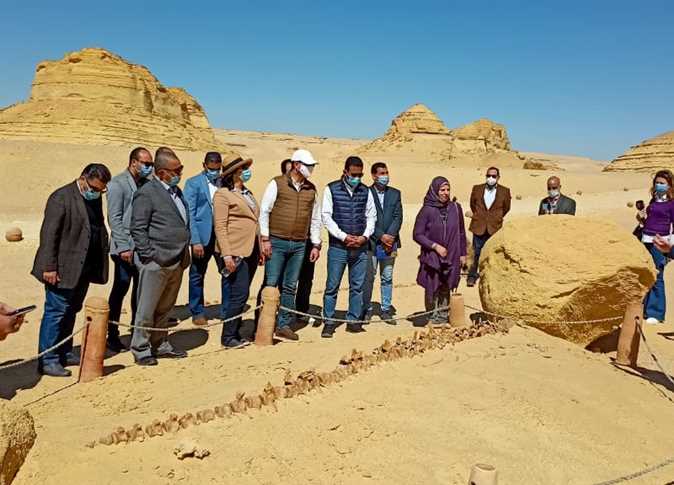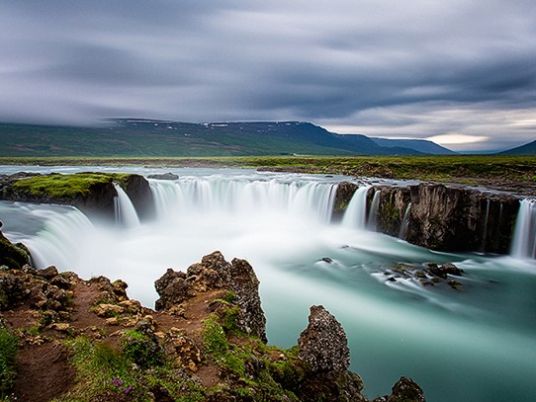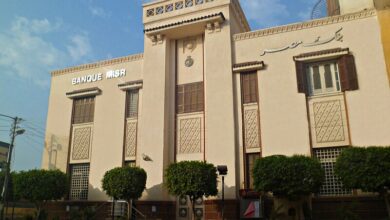
Fayoum Governor Ahmed al-Ansar and Deputy Minister of Tourism and Antiquities Ghada Shalaby on Friday visited the Museum of Fossils and Climate Change, the first museum in the Middle East dedicated to the fossil whales of Fayoum.
The museum displays rare collections that are millions of years old, including the largest fossil whale yet discovered and is distinguished by an architectural design based on Fayoum’s Whale Valley. True to its name, it also showcases the impact on climate changes through fossils that were discovered in the Fayoum Depression, particularly the Whale Valley.
The visit began with the presentation of a documentary film about the Whale Valley Reserve and its fossils and natural treasures.
After that, the two officials made an inspection tour inside the museum. during which they listened to an explanation about its collection.
One of its most prominent displays is of the ancient Basilosaurus isis whale, the largest fossil whale discovered, and a unique group of vertebrate fossils of scientific value. For the first time, the “legs” of Basilosaurus have been given special attention as it provides definitive evidence that whales evolved from animals living on land to marine creatures – the main reason for declaring the valley a World Heritage Site.
Fayoum boasts many touristic sites and unique fossils, which attract scholars and those interested in paleontology to delve into the secrets of the past, as well as visitors wishing to view the fossils themselves.
The valley of the whales area serves as a unique open geological museum and the Wadi al-Rayan Reserve, within which valley is located, is an important natural heritage area containing hundreds of unique marine fossils.
The United Nations Educational, Scientific and Cultural Organization (UNESCO) has announced Wadi al-Hitan area as a world heritage site in 2005.




